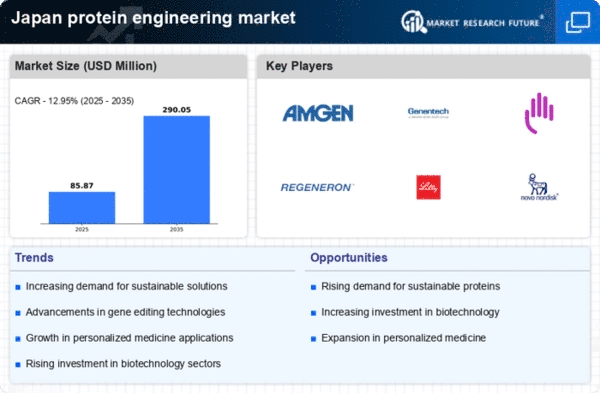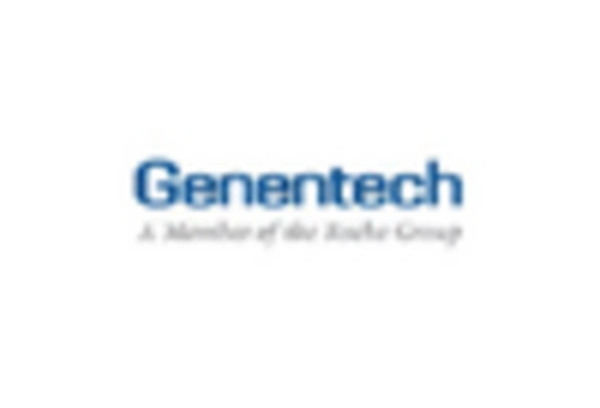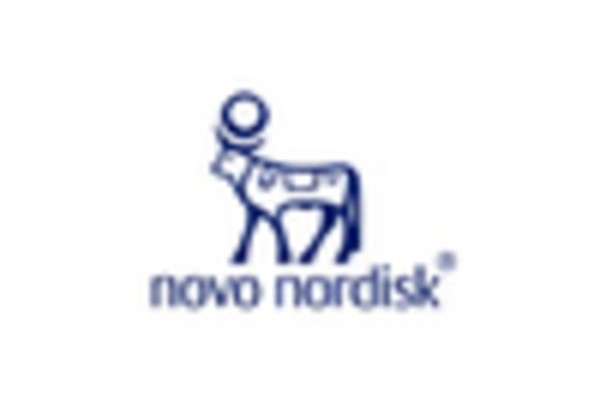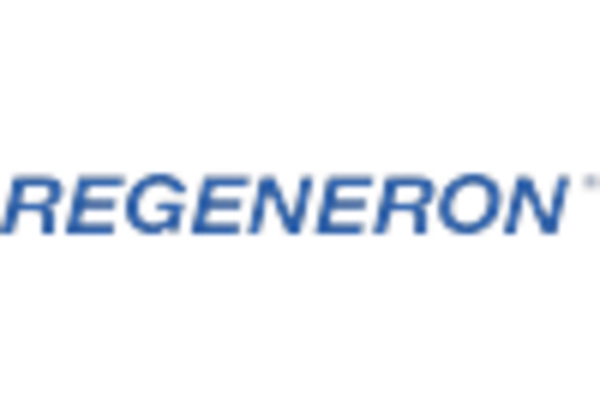Advancements in Synthetic Biology
Advancements in synthetic biology are reshaping the landscape of the protein engineering market in Japan. The integration of synthetic biology techniques allows for the design and construction of new biological parts, devices, and systems, which can lead to the creation of innovative proteins with enhanced functionalities. This field is rapidly evolving, with research institutions and companies focusing on developing synthetic pathways for protein production. The market for synthetic biology in Japan is expected to reach ¥200 billion by 2026, indicating a substantial opportunity for protein engineering applications. As synthetic biology continues to mature, it is likely to drive the demand for engineered proteins, thereby expanding the protein engineering market.
Rising Demand for Personalized Medicine
The protein engineering market in Japan is experiencing a notable surge in demand for personalized medicine. This trend is driven by advancements in genomics and biotechnology, which enable the development of tailored therapies that cater to individual patient profiles. As healthcare providers increasingly adopt precision medicine approaches, the need for engineered proteins that can target specific diseases becomes paramount. The market for personalized medicine in Japan is projected to grow at a CAGR of approximately 10% over the next five years, presenting a robust opportunity for protein engineering applications. This shift towards personalized treatment regimens is likely to propel the protein engineering market, as companies strive to innovate and create proteins that meet the unique therapeutic needs of patients.
Growing Focus on Agricultural Biotechnology
The protein engineering market is also influenced by the growing focus on agricultural biotechnology in Japan. With the increasing need for sustainable agricultural practices and food security, there is a rising interest in developing genetically modified organisms (GMOs) that can withstand environmental stresses. Engineered proteins play a crucial role in enhancing crop resilience and improving yield. The agricultural biotechnology market in Japan is projected to grow at a CAGR of 8% over the next five years, which could lead to increased investments in protein engineering. This trend suggests that the protein engineering market will likely see a surge in demand for proteins that can be utilized in agricultural applications.
Government Support for Biotechnology Initiatives
The Japanese government is actively promoting biotechnology initiatives, which significantly impacts the protein engineering market. Through various funding programs and research grants, the government aims to bolster innovation in biopharmaceuticals and related fields. In recent years, the government has allocated over ¥100 billion to support biotechnology research, fostering an environment conducive to advancements in protein engineering. This financial backing not only encourages startups and established companies to invest in protein engineering but also enhances collaboration between public and private sectors. As a result, the protein engineering market is likely to benefit from increased research activities and the development of novel therapeutic proteins.
Emerging Applications in Industrial Biotechnology
Emerging applications in industrial biotechnology are contributing to the growth of the protein engineering market in Japan. Industries are increasingly recognizing the potential of engineered proteins in various sectors, including biofuels, bioplastics, and waste management. The shift towards sustainable industrial processes is driving the demand for enzymes and proteins that can facilitate these applications. The industrial biotechnology market in Japan is anticipated to reach ¥150 billion by 2025, indicating a significant opportunity for protein engineering innovations. As companies seek to enhance efficiency and reduce environmental impact, the protein engineering market is likely to expand, driven by the need for specialized proteins in industrial applications.
















